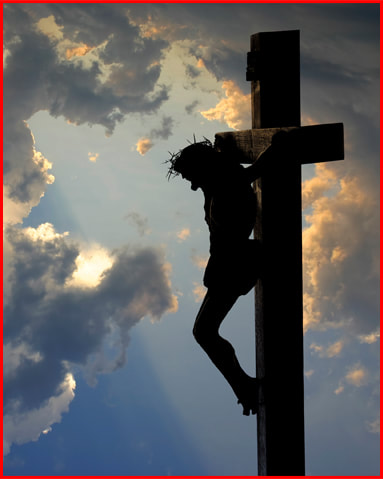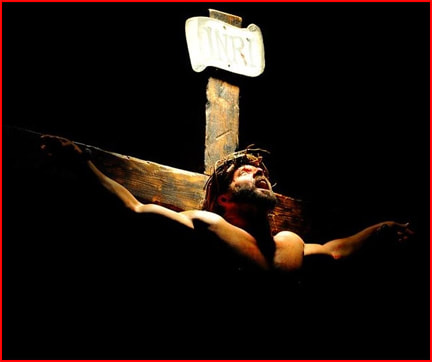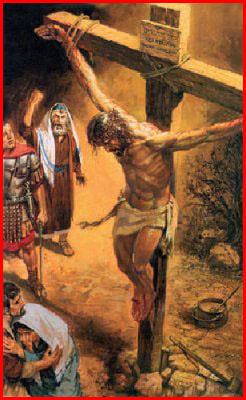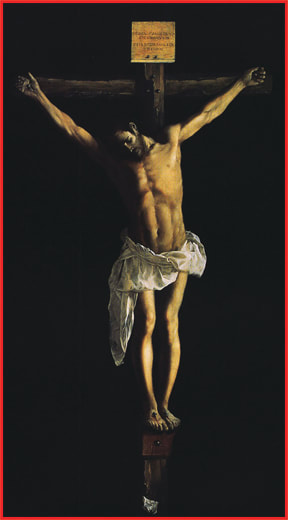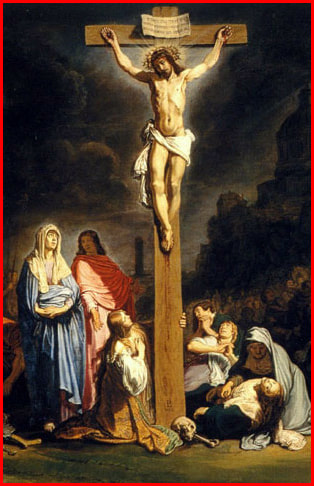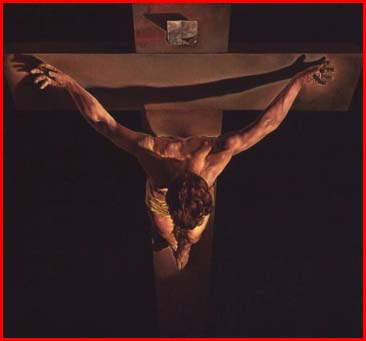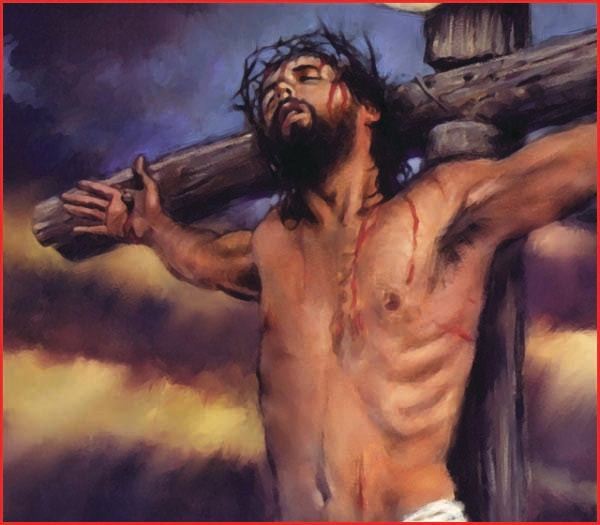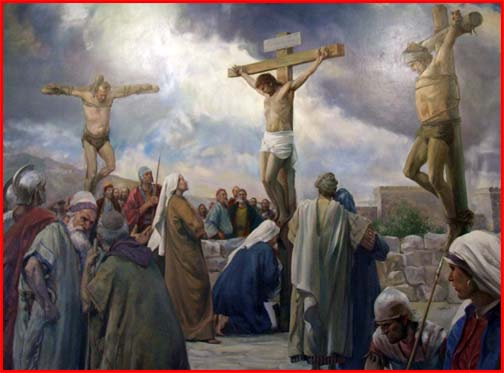| Devotion to Our Lady |
|
- Homepage
-
Daily Thoughts
- 2023 October Daily Thoughts
- Daily Thoughts Lent 2020
- Daily Thoughts for Advent 2019
- Daily Thoughts for October 2019
- Daily Thoughts for September 2019
- Daily Thoughts for August 2019
- Daily Thoughts for July
- Daily Thoughts for June
- Daily Thoughts for Easter 2019
- Daily Thoughts for Lent 2019
- Daily Thoughts for Christmas
- Daily Thoughts Easter 2022
- Sacred Heart
- Holy Ghost
-
Spiritual Life
- Holy Mass Explained
- First Friday Devotions
- First Saturday Devotions
- The Mercy of God
- Vocations
- The Path Everyone Must Walk >
- Gift of Failure
- Halloween or Hell-O-Ween?
- Ignatian Spiritual Exercises >
- Meditation is Soul-Saving
- Spiritual Communion
- Miraculous Medal
- Enrollment in Miraculous Medal
- St. Benedict Medal
- Holy Water
- Advice on Prayer
- Your Daily Mary
-
Prayers
- September Devotions
- Seven Sorrows of Our Lady
-
Novenas
>
- NV-Help of Christians
- NV-Nativity of Our Lady
- NV-Seven Sorrows
- NV- Sorrowful Heart
- NV-Pope St Pius X
- NV-La Salette
- NV-St Michael Archangel
- NV-Immaculate Heart
- NV-Assumption
- NV-Novena for Fathers
- NV-Novena for Your Mother
- NV-St Raphael Archangel
- NV-Souls in Purgatory
- NV-All Saints Day
- NV-Christ the King
- NV-Divine Motherhood
- NV-Guardian Angels
- NV-Rosary
- NV-Mirac Med
- NV- Imm Conc
- NV - Guadalupe
- NV - Nativity of Jesus
- NV-Epiphany
- NV-OL Good Success
- NV-Lourdes
- NV-St Patrick
- NV-St Joseph
- NV-Annunciation
- NV-St Louis de Montfort
- NV-OL Good Counsel
- NV-Last Supper
- NV-Passion
- NV-Pentecost
- NV-Ascension
- NV-Sacred Heart
- NV-Sacred Heart & Perpetual Help
- NV-Corpus Christi
- NV-OL of Perpetual Help
- NV-Queenship BVM
- NV-OL of Mount Carmel
- NV-St Mary Magdalen
- NV- Im Hrt
- August Devotions to IHM
- Immaculate Heart of Mary
- Litany of Dependence
- Prayers to St Mary Magdalen
- Prayers in Times of Sickness Disease & Danger
- Holy Souls in Purgatory
- Meditations on the Litany of Our Lady
- Special Feast Days
- Prayers to Mary (Mon-Sun)
- Litanies to Our Lady >
- Various & Special Needs
- Our Lady of the Rosary
- Our Lady of Mt. Carmel
- Our Lady of Perpetual Help
- Our Lady of Guadalupe
- Other titles of Our Lady
-
Rosary
- Downloads
- Consecration
- Easter Season
-
Holy Week
- Last Seven Words of Jesus >
- Characters of Passion >
- The Last Days of Christ
- Before Palm Sunday
- Palm Sunday
- Monday in Holy Week
- Tuesday in Holy Week
- Wednesday in Holy Week
- Holy Thursday (Last Supper)
- Holy Thursday (Agony & Arrest)
- Night Vigil with Christ
- Good Friday (Pilate & Herod)
- Good Friday (Way of Cross & Crucifixion)
- Saturday in Holy Week
-
Lent
- Ideas for Lent
- Daily Lenten Planner
- Daily Lenten Liturgy
- From Cold to Hot
- Lent with Aquinas
- Lent with Dom Gueranger
- Virtues for Lent
- History of Penance
- How Expensive is Sin?
- Confession of Sins
- Letter to Friends of the Cross
- Sermons for Lent
- Stations of the Cross >
- Lenten Prayers
- 7 Penitential Psalms
- Lenten Psalms SUN
- Lenten Psalms MON
- Lenten Psalms TUE
- Lenten Psalms WED
- Lenten Psalms THU
- Lenten Psalms FRI
- Lenten Psalms SAT
- Lenten Laughs
- Septuagesima
-
Christmas
- Epiphany Explained
- Suggestions for Christmas
- Food For Thought
- Christmas with Aquinas
- Christmas with Dom Gueranger
- Christmas Prayers
- Candles & Candlemas
- Christmas Sermons
- Christmas Prayers SUN
- Christmas Prayers MON
- Christmas Prayers TUE
- Christmas Prayers WED
- Christmas Prayers THU
- Christmas Prayers FRI
- Christmas Prayers SAT
- Twelve Days of Christmas >
-
Advent Journey
- Purgatory
- Christ the King
- Legion of Mary
- Scapular
-
Saints
-
Martyrs for the Faith
>
- Your Daily Martyr >
- All 365 Days of Martyrs
- Cristeros
- St Valentine & Valentine's Day
- Martyrs--Thomas Becket
- Martyrs--John the Apostle
- Holy Machabees
- Age of Martyrdom
- Carmelites of Compiegne
- Martyrs--Peter & Paul
- Martyrs--John the Baptist
- Martyrs--Andrew
- Martyrs--James the Great
- Martyrs--North American
- Martyrs--Seven Holy Sleepers
- Martyrs--Afra
- School of Martyrdom
- Martyrs--Christina
- Desert Saints >
- Saints for Sinners >
- Saints of Mary >
- History of All Saints Day
-
Martyrs for the Faith
>
- Precious Blood
- Synod 2023
-
Catechism
- Catechism Lesson 1
- Catechism Lesson 2
- Catechism Lesson 3
- Catechism Lesson 4
- Catechism Lesson 5
- Catechism Lesson 6
- Catechism Lesson 7
- Catechism Lesson 8
- Catechism Lesson 9
- Catechism Lesson 10
- Catechism Lesson 11
- Catechism Lesson 12
- Catechism Lesson 13
- Catechism Lesson 14
- Catechism Lesson 15
- Catechism Lesson 16
- Catechism Lesson 17
- Catechism Lesson 18
- Catechism Lesson 19
- Catechism Lesson 20
- Catechism Lesson 21
- Catechism Lesson 22
- Bible Study
-
Calendar
- Miracles
- Apparitions
- Shrines
- Prophecies
- Angels Homepage
- Hell
-
Church Crisis
- Conspiracy Theories
- Amazon Synod 2019 >
- Liberalism & Modernism
- Modernism--Encyclical Pascendi
- Modernism & Children
- Modernism--Documents
- The Francis Pages
- Church Enemies on Francis
- Francis Quotes
- Amoris Laetitia Critique
- Danger of Ignorance (Pius X)
- Restore all In Christ (Pius X)
- Catholic Action (Pius X)
- Another TITANIC Disaster?
- The "Errors of Russia"
- CRISIS PRAYERS
- Election Novena 2024
- The Anger Room
- War Zone
- Life of Mary
- Spiritual Gym
- Stupidity
- Coronavirus and Catholicism
- History & Facts
- Books
- Catholic Family
- Children
- Daily Quiz
-
Novena Church & Pope
- Day 01 Church-Pope Novena
- Day 02 Church-Pope Novena
- Day 03 Church-Pope Novena
- Day 04 Church-Pope Novena
- Day 05 Church-Pope Novena
- Day 06 Church-Pope Novena
- Day 07 Church-Pope Novena
- Day 08 Church-Pope Novena
- Day 09 Church-Pope Novena
- Day 10 Church-Pope Novena
- Day 11 Church-Pope Novena
- Day 12 Church-Pope Novena
- Day 13 Church-Pope Novena
- Day 14 Church-Pope Novena
- Day 15 Church-Pope Novena
- Day 16 Church-Pope Novena
- Day 17 Church-Pope Novena
- Day 18 Church-Pope Novena
- Day 19 Church-Pope Novena
- Day 20 Church-Pope Novena
- Day 21 Church-Pope Novena
- Day 22 Church-Pope Novena
- Day 23 Church-Pope Novena
- Day 24 Church-Pope Novena
- Day 25 Church-Pope Novena
- Day 26 Church-Pope Novena
- Day 27 Church-Pope Novena
- Day 28 Church-Pope Novena
- Day 29 Church-Pope Novena
- Day 30 Church-Pope Novena
- Day 31 Church-Pope Novena
- Day 32 Church-Pope Novena
- Day 33 Church-Pope Novena
- Day 34 Church-Pope Novena
- Day 35 Church-Pope Novena
- Day 36 Church-Pope Novena
- Day 37 Church-Pope Novena
- Day 38 Church-Pope Novena
- Day 39 Church-Pope Novena
- Day 40 Church-Pope Novena
- Day 41 Church-Pope Novena
- Day 42 Church-Pope Novena
- Day 43 Church-Pope Novena
- Day 44 Church-Pope Novena
- Day 45 Church-Pope Novena
- Day 46 Church-Pope Novena
- Day 47 Church-Pope Novena
- Day 48 Church-Pope Novena
- Day 49 Church-Pope Novena
- Day 50 Church-Pope Novena
- Day 51 Church-Pope Novena
- Day 52 Church-Pope Novena
- Day 53 Church-Pope Novena
- Day 54 Church-Pope Novena
- Penance Novena
- Daily WeAtheR Forecast
The Greatest and Most Important Week in the Church's Liturgical Year
CLICK ON ANY HOLY WEEK LINK BELOW
Also lots of LENTEN & HOLY WEEK DOWNLOADS on the downloads page (click here)
LITURGICAL PRAYERS FOR EACH DAY OF THE WEEK DURING LENT
| Sundays of Lent | Mondays of Lent | Tuesdays of Lent | Wednesdays of Lent | Thursdays of Lent | Fridays of Lent | Saturdays of Lent |
HOLY WEEK PAGES
| Daily Thoughts | Holy Week Main Page | Before Palm Sunday | Palm Sunday | Last Days of Christ |
| Holy Thursday Last Supper Novena | Good Friday Passion Novena |
| Monday of Holy Week | Tuesday of Holy Week | Wednesday of Holy Week | Holy Thursday (Last Supper) | Holy Thursday (Agony & Arrest) |
| Night Vigil With Christ | Good Friday (Pilate & Herod) | Good Friday (Way of Cross & Crucifixion) | Holy Saturday |
THE CHIEF CHARACTERS OF THE PASSION
| Characters of the Passion Mainpage | The Sanhedrin | Pharisees | Scribes | Saducees | Jewish Crowd | Roman Rulers |
| Judas | Annas & Caiphas | Pontius Pilate | Herod | Barabbas | Dismas the Good Thief | St. Peter | St. John | Mary Magdalen |
THE FOURTEEN STATIONS OF THE CROSS
| Introduction to the Stations of the Cross | Short Version of the Stations of the Cross (all 14 on one page) | 1st Station | 2nd Station | 3rd Station |
| 4th Station | 5th Station | 6th Station | 7th Station | 8th Station | 9th Station | 10th Station | 11th Station | 12th Station | 13th Station | 14th Station |
THE LAST SEVEN WORDS OF JESUS FROM THE CROSS
| Seven Last Words on the Cross (Introduction) | The 1st Word on the Cross | The 2nd Word on the Cross | The 3rd Word on the Cross |
| The 4th Word on the Cross | The 5th Word on the Cross | The 6th Word on the Cross | The 7th Word on the Cross |
PRAYERS AND DEVOTIONS TO THE SEVEN SORROWS OF OUR LADY
| Seven Sorrows Meditations | Short Prayers & Short Seven Sorrows Rosary | Longer Seven Sorrows Rosary |
| 1st Sorrow of Our Lady | 2nd Sorrow of Our Lady | 3rd Sorrow of Our Lady | 4th Sorrow of Our Lady |
| 5th Sorrow of Our Lady | 6th Sorrow of Our Lady | 7th Sorrow of Our Lady |
| Novena #1 to the Sorrowful Heart of Mary | Novena #2 to the Sorrowful Heart of Mary |
LENTEN PAGES
| ASH WEDNESDAY COUNTDOWN | LENT (MAIN PAGE) | DAILY THOUGHTS | DAILY LENTEN LITURGY | DAILY LENTEN PLANNER |
| LENTEN PRAYERS | THE 7 PENITENTIAL PSALMS | IDEAS FOR PENANCE | LENT WITH AQUINAS | LENT WITH DOM GUERANGER |
| HISTORY OF PENANCE | PENANCES OF THE SAINTS | HOW EXPENSIVE IS SIN? | CONFESSION OF SINS | ARE FEW SOULS SAVED? |
| VIRTUES FOR LENT | FROM COLD TO HOT | LENTEN LAUGHS | SERMONS FOR LENT | LETTER TO FRIENDS OF THE CROSS |
| STATIONS OF THE CROSS (INDIVIDUALLY) | ALL 14 STATIONS OF THE CROSS |
| THE LAST DAYS OF CHRIST | SPECIAL HOLY WEEK PAGES |
CLICK ON ANY HOLY WEEK LINK BELOW
Also lots of LENTEN & HOLY WEEK DOWNLOADS on the downloads page (click here)
LITURGICAL PRAYERS FOR EACH DAY OF THE WEEK DURING LENT
| Sundays of Lent | Mondays of Lent | Tuesdays of Lent | Wednesdays of Lent | Thursdays of Lent | Fridays of Lent | Saturdays of Lent |
HOLY WEEK PAGES
| Daily Thoughts | Holy Week Main Page | Before Palm Sunday | Palm Sunday | Last Days of Christ |
| Holy Thursday Last Supper Novena | Good Friday Passion Novena |
| Monday of Holy Week | Tuesday of Holy Week | Wednesday of Holy Week | Holy Thursday (Last Supper) | Holy Thursday (Agony & Arrest) |
| Night Vigil With Christ | Good Friday (Pilate & Herod) | Good Friday (Way of Cross & Crucifixion) | Holy Saturday |
THE CHIEF CHARACTERS OF THE PASSION
| Characters of the Passion Mainpage | The Sanhedrin | Pharisees | Scribes | Saducees | Jewish Crowd | Roman Rulers |
| Judas | Annas & Caiphas | Pontius Pilate | Herod | Barabbas | Dismas the Good Thief | St. Peter | St. John | Mary Magdalen |
THE FOURTEEN STATIONS OF THE CROSS
| Introduction to the Stations of the Cross | Short Version of the Stations of the Cross (all 14 on one page) | 1st Station | 2nd Station | 3rd Station |
| 4th Station | 5th Station | 6th Station | 7th Station | 8th Station | 9th Station | 10th Station | 11th Station | 12th Station | 13th Station | 14th Station |
THE LAST SEVEN WORDS OF JESUS FROM THE CROSS
| Seven Last Words on the Cross (Introduction) | The 1st Word on the Cross | The 2nd Word on the Cross | The 3rd Word on the Cross |
| The 4th Word on the Cross | The 5th Word on the Cross | The 6th Word on the Cross | The 7th Word on the Cross |
PRAYERS AND DEVOTIONS TO THE SEVEN SORROWS OF OUR LADY
| Seven Sorrows Meditations | Short Prayers & Short Seven Sorrows Rosary | Longer Seven Sorrows Rosary |
| 1st Sorrow of Our Lady | 2nd Sorrow of Our Lady | 3rd Sorrow of Our Lady | 4th Sorrow of Our Lady |
| 5th Sorrow of Our Lady | 6th Sorrow of Our Lady | 7th Sorrow of Our Lady |
| Novena #1 to the Sorrowful Heart of Mary | Novena #2 to the Sorrowful Heart of Mary |
LENTEN PAGES
| ASH WEDNESDAY COUNTDOWN | LENT (MAIN PAGE) | DAILY THOUGHTS | DAILY LENTEN LITURGY | DAILY LENTEN PLANNER |
| LENTEN PRAYERS | THE 7 PENITENTIAL PSALMS | IDEAS FOR PENANCE | LENT WITH AQUINAS | LENT WITH DOM GUERANGER |
| HISTORY OF PENANCE | PENANCES OF THE SAINTS | HOW EXPENSIVE IS SIN? | CONFESSION OF SINS | ARE FEW SOULS SAVED? |
| VIRTUES FOR LENT | FROM COLD TO HOT | LENTEN LAUGHS | SERMONS FOR LENT | LETTER TO FRIENDS OF THE CROSS |
| STATIONS OF THE CROSS (INDIVIDUALLY) | ALL 14 STATIONS OF THE CROSS |
| THE LAST DAYS OF CHRIST | SPECIAL HOLY WEEK PAGES |
THE FIRST WORD
Father, Forgive Them! For They Know Not What They Do!
Father, Forgive Them! For They Know Not What They Do!
|
It seems to be a fact of human psychology that when death approaches, the human heart speaks its words of love to those whom it holds closest and dearest. There is no reason to suspect that it is otherwise in the case of the Heart of hearts. If He spoke in a graduated order to those whom He loved most, then we may expect to find in His first three words the order of His love and affection. His first words went out to enemies: “Father, forgive them,” His second to sinners: “This day you will be with Me in Paradise,” and His third to saints: “Woman, behold your son.” Enemies, sinners, and saints — such is the order of Divine Love and Thoughtfulness.
The congregation anxiously awaited His first word. The executioners expected Him to cry, for every one pinned on the gibbet of the Cross had done it before Him. Seneca tells us that those who were crucified cursed the day of their birth, the executioners, their mothers, and even spat on those who looked upon them. Cicero tells us that at times it was necessary to cut out the tongues of those who were crucified, to stop their terrible blasphemies. Hence the executioners expected a cry but not the kind of cry that they heard. The Scribes and Pharisees expected a cry, too, and they were quite sure that He who had preached “Love your enemies,” and “Do good to those who hate you,” would now forget that Gospel with the piercing of feet and hands. They felt that the excruciating and agonizing pains would scatter to the winds any resolution He might have taken to keep up appearances. Everyone expected a cry, but no one — with the exception of the three at the foot of the Cross — expected the cry they did hear. Like some fragrant trees which bathe in perfume the very axe which gnashes them, the great Heart on the Tree of Love poured out from its depths something less a cry than a prayer, the soft, sweet, low prayer of pardon and forgiveness: “Father, forgive them, for they know not what they do.” Forgive whom? Forgive enemies? The soldier in the courtroom of Caiaphas who struck Him with a mailed fist; Pilate, the politician, who condemned a God to retain the friendship of Caesar; Herod, who robed Wisdom in the garment of a fool; the soldiers who swung the King of Kings on a tree between heaven and earth — forgive them? Forgive them, why? Because they know what they do? No, because they know not what they do. If they knew what they were doing and still went on doing it; if they knew what a terrible crime they were committing by sentencing Life to death; if they knew what a perversion of justice it was to choose Barabbas to Christ; if they knew what cruelty it was to take the feet that trod everlasting hills and pinion them to the limb of a tree; if they knew what they were doing and still went on doing it, unmindful of the fact that the very blood which they shed was capable of redeeming them, they would never be saved! Why, they would be damned if it were not for the fact that they were ignorant of the terrible thing they did when they crucified Christ! It was only the ignorance of their great sin that brought them within the pale of the hearing of that cry from the Cross. It is not wisdom that saves; it is ignorance! There is no redemption for the fallen angels. Those great spirits headed by the Bearer of Light, Lucifer, endowed with an intelligence compared with which ours is but that of a child, saw the consequences of each of their decisions just as clearly as we see that two and two make four. Having made a decision, they made it irrevocably; there was no taking it back, and hence there was no future redemption. It is because they knew what they were doing that they were excluded from the hearing of that cry that went forth from the Cross. It is not wisdom that saves; it is ignorance! In like manner, if we knew what a terrible thing sin was and went on sinning; if we knew how much love there was in the Incarnation and still refused to nourish ourselves with the Bread of Life; if we knew how much sacrificial love there was in the Sacrifice of the Cross and still refused to fill the chalice of our heart with that love; if we knew how much mercy there was in the Sacrament of Penance, and still refused to bend a humble knee to a hand that had the power to loose both in heaven and on earth; if we knew how much life there was in the Eucharist and still refused to take of the Bread which makes life everlasting and still refused to drink of that Wine that produces and enriches virgins; if we knew all the truth there is in the Church as the mystical body of Christ and still turned our backs to it like other Pilates; if we knew all these things and still stayed away from Christ and His Church, we should be lost! It is not wisdom that saves; it is ignorance! It is only our ignorance of how good God is that excuses us for not being saints! BLESSED ANNE CATHERINE EMMERICH The Dolorous Passion of Our Lord Jesus Christ First Word of Jesus on the Cross As soon as the executioners had crucified the two thieves and divided the garments of Jesus between them, they gathered up their tools, addressed a few more insulting words to our Lord, and went away. The Pharisees, likewise, rode up to Jesus, looked at him scornfully, made use of some opprobrious expressions, and then left the place. The Roman soldiers, of whom a hundred had been posted round Calvary, were marched away, and their places filled by fifty others, the command of whom was given to Abenadar, an Arab by birth, who afterwards took the name of Ctesiphon in Baptism; and the second in command was Cassius, who, when he became a Christian, was known by the name of Longinus: Pilate frequently made use of him as a messenger. Twelve Pharisees, twelve Sadducees, as many Scribes, and a few Ancients, accompanied by those Jews who had been endeavoring to persuade Pilate to change the inscription on the Cross of Jesus, then came up: they were furious, as the Roman governor had given them a direct refusal. They rode round the platform, and drove away the Blessed Virgin, whom St. John led to the holy women. When they passed the Cross of Jesus, they shook their heads disdainfully at Him, exclaiming at the same time, “Vah! Thou that destroyest the temple of God, and in three days buildest it up again, save Thyself, coming down from the Cross. Let Christ, the King of Israel, come down now from the Cross, that we may see and believe.” The soldier, likewise, made use of derisive language. The countenance and whole body of Jesus became even more colorless: He appeared to be on the point of fainting, and Gesmas (the wicked thief) exclaimed, “The demon by whom He is possessed is about to leave Him.” A soldier then took a sponge, filled it with vinegar, put it on a reed, and presented it to Jesus, who appeared to drink. “If thou art the King of the Jews,” said the soldier, “save Thyself, coming down from the Cross.” These things took place during the time that the first band of soldiers was being relieved by that of Abenadar. Jesus raised His head a little, and said, “Father, forgive them, for they know not what they do.” And Gesmas cried out, “If Thou art the Christ, save Thyself and us.” Dismas (the good thief) was silent, but he was deeply moved at the prayer of Jesus for His enemies. When Mary heard the voice of her Son, unable to restrain herself, she rushed forward, followed by John, Salome, and Mary of Cleophas, and approached the Cross, which the kind-hearted centurion did not prevent. The prayers of Jesus obtained for the good thief a most powerful grace; he suddenly remembered that it was Jesus and Mary who had cured him of leprosy in his childhood, and he exclaimed in a loud and clear voice, “How can you insult Him when He prays for you? He has been silent, and suffered all your outrages with patience; He is truly a Prophet—He is our King—He is the Son of God.” This unexpected reproof from the lips of a miserable malefactor, who was dying on a cross, caused a tremendous commotion among the spectators; they gathered up stones, and wished to throw them at him; but the centurion Abenadar would not allow it. The Blessed Virgin was much comforted and strengthened by the prayer of Jesus, and Dismas said to Gesmas, who was still blaspheming Jesus, “Neither dost thou fear God, seeing thou art under the same condemnation. And we indeed justly, for we receive the due reward of our deeds; but this Man hath done no evil. Remember thou art now at the point of death, and repent.” He was enlightened and touched: he confessed his sins to Jesus, and said: “Lord, if thou condemnest me it will be with justice.” And Jesus replied, “Thou shalt experience my mercy.” Dismas, filled with the most perfect contrition, began instantly to thank God for the great graces he had received, and to reflect over the manifold sins of his past life. All these events took place between twelve and the half-hour shortly after the crucifixion; but such a surprising change had taken place in the appearance of nature during that time as to astonish the beholders and fill their minds with awe and terror. FR. ALBAN GOODIER S.J. The Passion and Death of Our Lord Jesus Christ The First Word: “Father, forgive them! They know not what they do!” While the enemy wrangles with each other at the house of Pilate, the Evangelist brings us back to the foot of the cross, that we may hear the first words that fall from the lips of Him who hangs upon it. Two characteristics of Jesus have already been the source of accusations against Him—Jesus the Friend of sinners and Jesus the King; we have now a third characteristic that reaches its crowning point upon Calvary. In all the teaching and practice of Jesus, nothing had been so striking, nothing, if we may so express it, so new, as His constant forgiveness. The Paralytic at Capharnaum, the woman who was a sinner in Magdala, the adulteress in Jerusalem, the Samaritans who refused Him, His enemies at every turn, all these scenes had all but shocked His followers; He had seemed to them to sacrifice justice for mercy, honor for meekness, strength for peace, almost truth itself; that sin might be forgotten and the sinner might go free. Yet in His teaching He had but emphasized the lesson of His deeds. “Forgive and you shall be forgiven” … “Forgive us our trespasses, as we forgive them that trespass against us” … “Seven times?—Seventy times seven times!” The refrain had run through all His life: “I say to you, Love your enemies; do good to them that hate you and pray for them that persecute and calumniate you.” There is a Limit to Forgiveness Still there was a limit even to forgiveness. In Galilee He had pronounced “Woe” on Corozain and Bethsaida; He had said that Capharnaum should go down even to Hell, because they had not heard Him nor received His kingdom as they ought. Over Jerusalem, too, He had wept; Jerusalem would perish because it would not have Him. It would look for Him and it would not find Him; the day would come when there would be left of it not a stone upon a stone. On the Tuesday evening of that very week, when for the last time He had left the Temple and its battles behind Him, as He sat with His Twelve on the Mount of Olives looking down on the beauty of the city below Him, He had foretold to them the doom that was to come. He had added that one day the Son of Man would return in all His majesty, and would pronounce on those who had shown themselves His enemies the sentence: “Depart from me, you accursed, into everlasting fire which was prepared for the devil and his angels.” Surely now the time for the fulfilment of that prophecy had come. He had run His course. He had declared Himself; and had been declared, a king; openly at last He had claimed to be the Son of God; and while Pilate crucified Him for the first, His own people crucified Him for the second. Should He now die unavenged, unvindicated, with all this ignominy heaped upon Him, would not His death, unworthy of a king, utterly unworthy of a Son of God, prove His enemies to be right, and His own claims wrong? In the face of such a scandal, what disciple, no matter how devoted, would be able to uphold Him in the future? Moreover, what provocation could be compared to this? He had offered these men the kingdom, and they had refused it; life, and they had rejected it; light, and they had loved darkness rather than the light; Himself, and they had crucified Him. He had warned them of what they did; of the consequences that would come to them; plainly in words, clearly enough in parables, so that When the chief priests and prophets Had heard his parables “They knew that he spoke of them.” With that irony which He knew so well how to use, once He had led them on unwittingly to pronounce judgment on themselves: “Last of all he sent to them his son, saying: ‘They will reverence my son!’ But the husbandmen, seeing the son, said among themselves: ‘This is the heir! Come let us kill him, and we shall have his inheritance!’ And taking him, they cast him forth out of the vineyard and killed him. ‘When, therefore, the lord of the vineyard shall come, what will he do to those husbandmen?’ They say to him: ‘He will bring those evil men to an evil end and will let out his vineyard to other husbandmen, that shall render him the fruit in due season.’ Jesus saith to them: ‘Have you never read in the Scriptures? “The stone which the builders rejected, the same is become the head of the corner? By the Lord hath this been done and it is wonderful in our eyes.” Therefore I say to you, that the kingdom shall be taken from you and shall be given to a nation yielding the fruits thereof.’ ” (Matthew 21:37-43). If then He now came down from the cross, if at this dramatic moment He pronounced on these His murderers the doom with which He had already threatened them, would not all posterity applaud the magnificent act of justice? Would not all the world resound with hosannas to the Son of David, who had so vindicated His own honor? Would it not be said that once more the prophecies and types had been fulfilled, the floods of Noe, Sodom and Gomorrha, the destructions in the desert, the exile of the Chosen People themselves in foreign lands? Maybe the world would have applauded; maybe even the Christian world would have bowed in homage before a proof of divine justice, but such was not the way of Jesus Christ. The prophets had said of Him that He “Would not break the bruised reed”, and He had said of Himself that He had “Come not to judge the world, but that the world might be saved through him.” He had preached forgiveness as no other man had ever preached it before Him. He had said that if a man be struck in the face he should not retaliate ; that vengeance belonged not to men, not even to Himself, but to the Father who knew all things and to Him alone. He had said that He would be the example of men, in this as in all things else; He was “The way, the truth and the life.” If, then, He had so taught forgiveness, that greatest of virtues in so far as it is the hardest, the most opposed to human nature, of all the things that He taught, then as Man must He give a supreme example. If, as He had said, forgiveness makes man most akin to God the Father, then, to prove Himself indeed the Son of that Father, must He put forgiveness before the world as His own last manifestation. From the throne to which He was nailed, lifted up at last so that He might draw all things to Himself, at the solemn moment when He was to be declared the Redeemer of the world, He must set an example of forgiveness beyond which no man could go. He had told men to forgive that they might be “The children of your Father Who is in heaven.” This, then, would be the way He would prove He was the Son of that Father, not the way men expected, or these His very enemies demanded of Him. He would be “Perfect, as the heavenly Father is perfect.” He looked, not at men and their judgments, not at His enemies and their defiance, but upwards to the Father Himself. He spoke, not as the Judge that He was to be, not as the Master that He had always been, but as the Redeemer that at that moment He was. He searched for a reason to forgive, and even in that vast ocean of evil His infinite love found it, as love always finds it when it seeks. He allowed the words to be heard, by some at least around Him. That they were words of prayer did not surprise them; those who knew Him were accustomed to His prayer. But this was a prayer to be ever remembered; the prayer of Jesus crucified, for these His executioners, in such a place, at such a time, under such conditions. And Jesus said: “Father! Forgive them! For they know not what they do.” MEDITATION Forgiveness The first words that Jesus spoke after being nailed to the Cross were words of forgiveness. He had gone through much suffering and strain. He had been taken from court to court, from Caiphas to Pilate to Herod and back to Pilate. He had felt the angry tide of human passion explode against Him in false testimony, in insults and in shouting for His death. He had already sweat blood, had been scourged and crowned with thorns. He had walked the exhausting, bitter steps carrying His Cross to Calvary and had been stripped of His garments. He Forgives But no doubt the actual nailing to the Cross brings with it a new and more severe pain. The long, roughly shaped spikes tearing through His hands and feet not only burn like fire but send new throbs of pain throughout His whole body. Most of the poor slaves or criminals who were executed by crucifixion screamed and shouted in despair at this point. Ordinarily all this new, intense suffering wrung words from the mouth of the victim of crucifixion. But Christ put into practice what He had counseled, by praying for those who were His enemies. The height of physical pain wrung from His lips only the words of forgiveness: "Father, forgive them." He asked forgiveness for the soldiers, for the Jews who had maneuvered His execution, for all who by sinning in the years to come were to co-operate in His death. He Excuses Christ added words of excuse: "For they know not what they do." No doubt these words applied most fully to the Roman soldiers, for they were just the rough instruments of execution. But the words were put forth as a plea for all, considering the blindness of human reason and the force of passion on the human will. The high priests and other leaders knew quite well what they were doing, but even for them the enormity of the crime may not have been altogether clear. Our Lord prayed for their forgiveness. He had much to forgive even as a man, abstracting from the fact of His Divine Nature. These people who had brought on Him so much pain and disgrace were the very ones whom He had been trying to help. He had spent the past few years going about their country preaching, working miracles, even raising the dead from the grave. Yet, they closed their eyes to all this. They invented lies, tried to make it appear that this Man who lived in poverty, who had fled when some would make Him king, was plotting to overthrow the government and take over the power for Himself and His followers. The accusations against Him during the trial were absolutely false, as Pontius Pilate, the neutral Roman, also recognized. Hard to Take Most of us probably know from experience that if there is anything hard to take, it is a deliberately false accusation. If we are accused of something we have not done, our blood begins to boil immediately, and angry words rush to our lips. When false accusations come from ones we have been trying to help, they are even harder to take, for the ingratitude stings us. Yet this is exactly the situation, humanly speaking, that Christ found Himself in. To false accusation, to ingrained ingratitude, He reacts by a prayer for forgiveness. St. Stephen St. Stephen, the first martyr, comes to mind as a striking instance of one who followed the example of his Master in forgiving. His words of wisdom and truth so cut the Jewish leaders to the heart that they gnashed their teeth. They took Stephen out and cast stones at him. But while they were stoning him to death, he fell on his knees and prayed: "Lord, lay not this sin to their charge" (Acts 7:59). He could have called out to those who stoned him: "Do not forget that there is a just God, and that you will be punished for this!" Filled with the spirit of Christ, he prayed for the forgiveness of his enemies. So have the true followers of Christ acted through the ages. The lives of Saints are full of examples of ready forgiveness. The early martyrs prayed for their executioners. From our own shores have come stories of those who were tortured, yet prayed for those who tortured them. In March of 1649, Father Jean de Brebeuf endured martyrdom at the hands of the Iroquois Indians. Many times he spoke the words: "Jesus, have mercy on us," begging perseverance for himself and the other Christian prisoners, and forgiveness for their tormentors. The Indians poured scalding water over his head, jesting that without this baptism he could not be saved. "Jesus, have mercy on us" was his answer. He asked that God might forgive them since they did not know what they were doing, and would lead them all to a true Baptism. In fury at not being able to break Father de Brebeuf's spirit, the Iroquois cut off his nose and upper lip. Unable to endure his prayers for mercy for them, they cut out his tongue. Even then, the dying martyr forced from his tongueless mouth a hoarse, guttural: "Jesus, have mercy!" St. John Gualbert Back in the eleventh century, a man by the name of John Gualbert set out to avenge the death of his brother, Hugh. Hugh had been murdered, and John swore that he would kill the murderer. The father, also full of sorrow and resentment, encouraged him. John was a soldier and considered it upholding his honor to make up for the death of an only brother. So he set out to look for the killer. He met him on Good Friday in a passage so narrow that there was no escape. The man was unarmed and fell on his knees. He stretched out his arms in the form of a cross and asked, for the love of Jesus Crucified, to be forgiven his crime. John Gualbert did not hesitate long. He responded to grace and forgave the man in the name of Jesus Crucified; he even went forward and embraced him. God did not allow John to go unrewarded, but filled his soul with grace, leading him to the monastery, where he was to lead a strict and holy life. The Catholic Church now celebrates the Feast of St. John Gualbert on July 12th. Had he refused the plea for forgiveness, he would himself have become a vindictive murderer. But he forgave and became a Saint. Not Always Easy This does not mean to say that to forgive is always easy to do. In certain cases it may take great effort to forgive. Suppose somebody causes you to lose a good job; imagine somebody who deliberately ruined your health; put yourself in the position of St. John Gualbert, whose brother was murdered. No matter what effort it takes, no matter how greatly we have been wronged, the commandment of Christ stands. We must forgive. "I say to you, love your enemies" In some instances the wrong we suffer is genuine. In many more instances, it is much more a matter of hurt feelings and often of childishness that creates the wrongs. Very often the whole case can be seen by an unprejudiced observer to be a matter of pride. Perhaps there were some words spoken to us in anger, not altogether justifiable. The person who spoke them may regret his words very soon. But we rear up in indignation and make a big thing of them. Long after our "enemy" has humbly accused himself in Confession of harsh words, they still rankle in our hearts. A long-term grudge begins. There is not really much to forgive; but by refusing to forgive, the grudge becomes solidified. As time goes on, it is usually harder to forgive. Forgive Us ... As We Forgive Each day as we pray the Our Father, the prayer taught to us by His eternal Son, we pray to be forgiven even as we forgive—"Forgive us our trespasses, as we forgive those who trespass against us." If we do not forgive those who trespass against us, we are actually praying to God not to forgive us our own sins. We pray to be forgiven as we forgive. Robert Louis Stevenson, the English author, the writer of Treasure Island and other stories, was one night leading the prayers in his family circle. When he came to the words: "Forgive us our trespasses," he jumped up and went outside. After about twenty minutes he returned and, with great emotion, finished the prayers. Later he explained to his wife and children: "When I came to those words, 'Forgive as I wish to forgive others,' I thought of a certain man who had offended me today. Feelings of hatred stirred up in my heart. I could not go on with that beautiful prayer until I had fought these feelings down and made myself forgive as I asked to be forgiven." During the time that Robert Louis Stevenson was gone, he had conquered his feelings and gone to the home of the offender and assured him that all was well between them. All of us hope that God will forgive us our sins. All of us have sinned, and perhaps mortally, many times. If we expect forgiveness, we must extend it to others. Otherwise, we will be like the unmerciful servant spoken of by Our Lord. (Matt. 18:2335). This man was called by the king to pay a very large debt. But he had no means of paying, so the king ordered him to be sold, together with his wife and children. But the servant fell down and besought the king, saying: "Have patience with me, and I will pay thee all." So the king, moved by compassion, released him and canceled the entire debt. Then this servant, going out, met a fellow servant who owed him a small debt. He laid hold of him and demanded payment. The fellow servant fell down before him, saying: "Have patience with me, and I will pay thee all." But the first servant would not listen, and instead had him cast into prison. When the king was informed of this, he called in the first servant and said to him: "Wicked servant, I forgave thee all the debt, because thou besoughtest me: shouldst not thou then have had compassion also on thy fellow servant, even as I had compassion on thee?" And being angry, he handed him over to the torturers until he should pay all. At the end of this parable, Our Lord said: "So also shall my heavenly Father do to you, if you forgive not every one his brother from your hearts." Any time that we feel resentment and the growing of hard feelings and grudges within us, let us remember these things. Above all, let us look back to Calvary and remember the words of Our Lord: "Father, forgive them, for they know not what they do." PRAYER O Lord Jesus Christ, fount of love and mercy, Who didst say: "Blessed are the merciful: for they shall obtain mercy" (Matthew 5:7) and when Peter asked Thee if we were to forgive forgive our neighbor as much as seven times, Thou didst reply: "I say not to thee, till seven times; but till seventy times seven times" (Matthew 18:22). You have forgiven me on more than seventy-times seven occasions and still I keep sinning! Grant me grace of gratitude for Thy overwhelming mercy and help me not abuse Thy merciful Heart through continued sin, indifference and lukewarmness. I beg this grace of Thee through the Sorrowful and Immaculate Heart of the Mother of Mercy. Amen. |
Web Hosting by Just Host

